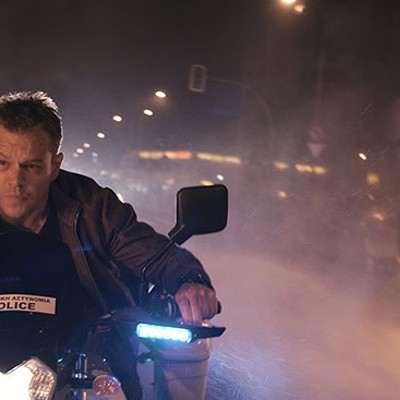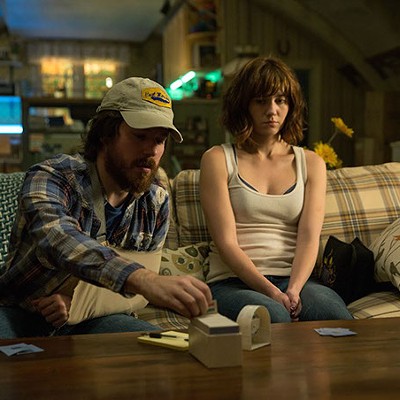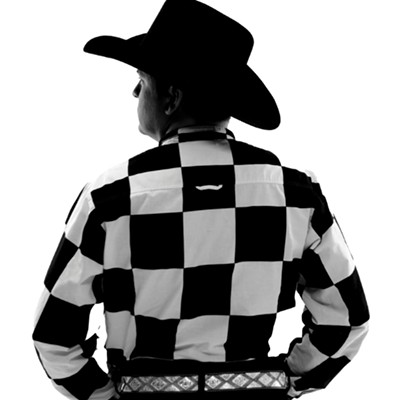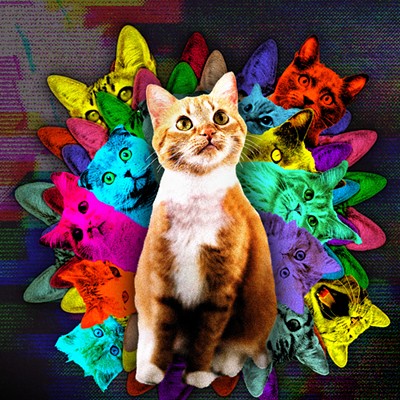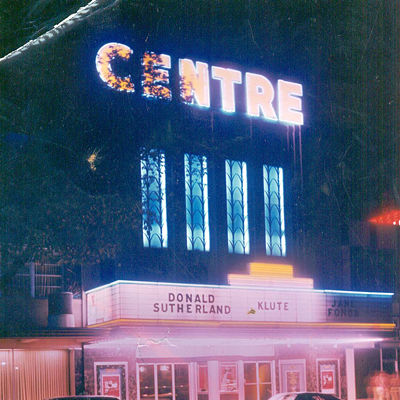But you know that going in. Anyone expecting Oscar-level material from titles like “Hot Target,” “Sextette” and the mega-depressing “Virgin Queen of St. Francis High” is misinformed, if not film-illiterate. Some highlights and/or lowlights from the collection...
Having just returned from New Orleans, I opted to begin with 1978’s “French Quarter,” in which underage Trudy (Alisha Fontaine, "Teenage Tramp") runs away to the Louisiana party town and the only job she can: as a stripper, of course. Her first attempt at peeling onstage is almost a scene of slapstick comedy. Drinking something she shouldn't, Trudy dreams she's back in the Jazz Age of Satchmo and Jelly Roll Morton, whereupon the movie's frame becomes gauzy at the edges, and Bruce Davidson is so young, he's near-unrecognizable. Brace yourself for heavy-handed narration, “Eyes Wide Shut” masks, writhing in a giant champagne glass, lesbian lovin’ and other bizarre fantasy sequences that may cause drowsiness.
With the way it begins, I could mistake 1981’s “Separate Ways” for a made-for-TV movie, but then Karen Black gets naked in its opening minutes. It's one of those standard divorce dramas: Car salesman (Tony Lo Bianco) cheats on nonworking wife (Black); wife contemplates cheating on her own. In this case, the apple of her eye is way-young college student David Naughton (“An American Werewolf in London”), who shows the flick’s age when he tells her, "I was on my way to go skating! It's the big craze now!" Black grows a spine, ditches her hubby and does what any newly empowered woman would do: gets a job at the Foxy Lady strip club! Wait, what?
From 1971, “Weekend with the Babysitter” is one odd duck. A middle-aged ad exec (George E. Carey, who tellingly wrote and produced) is pissed when the hot teen babysitter, naturally named Candy (Susan Romen), comes over, but his stuck-up wife (Luanne Roberts) has decided to go out on her own instead of their planned date night. A Tanqueray martini later, he doesn’t care so much anymore, and begins an affair with a Candy, who schools him not only in sex, but drugs ("Now this here is called a joint: J-O-I-N-T”), fashion (he ditches "my apricot fag shoes") and dirt bikes. While the Mrs. is involved in the smack, Carey’s enjoying by-the-fireplace sex; viewers should be warned that his breasts are bigger than hers, and he kisses likes he’s feeding chewed-up worms to his baby birds.
“Yellow Hair and the Fortress of Gold” is a goofy, spoofy, gender-flipped adventure in the Indiana Jones vein. Just take your least-favorite Indy film, divide by 5, and you have this cheap 1984 stinker. The best part about it is how it introduces its characters in style of ye olde serials. Yellow Hair (Laurene Landon, “Maniac Cop”) is the brave, easy-going heroine, while partner Pecos Kid (Ken Roberson, who co-produced, thus explaining his casting) is the Western archetype with a zest for life and a thick, Texas accent that renders “gold” as “goad.” There’s also a vicious mute, a greedy colonel and a prostitute named Rainbow — not to mention attacking snakes, rocks and tumbleweeds, and heart-ripping rituals torn straight from “Temple of Doom,” with all the excitement left behind.
More wretched is 1972’s “Blue Money.” The title’s a pun, involving a married couple who make bank by directing porn. Hey, I didn’t say it was a good pun, and you’ve been warned that it gets no more clever than that. One character says, “I'm amiable, can you dig it?,” which you wish would hold true for the movie, but it’s like sitting in on the surveillance team that tracks our protagonists: You just watch until you’ve numbed by boredom, waiting for something to happen.
I got the biggest jolt from the most recent inclusion: 1990’s “Click: The Calendar Girl Killer.” It is just what it says, with an unhinged photographer (Ross Hagen, writing for and directing himself) aggressively snapping scantily clad women (“Put some shit in it, man!”) who don’t cotton to his abusive ways: “I think working for you is worse than getting raped.” Then Ross goes bug-nuts insane, and starts killing his models. Yes, “Click” becomes a senseless slasher, but at least one in which the killer plays with flares and leads a spirited round of “Here We Go Round the Mulberry Bush.” Epileptics, take note: A sex scene takes place under strobe lights. Must be seen to be believed — the whole thing, I mean, not just the strobe sex. —Rod Lott

